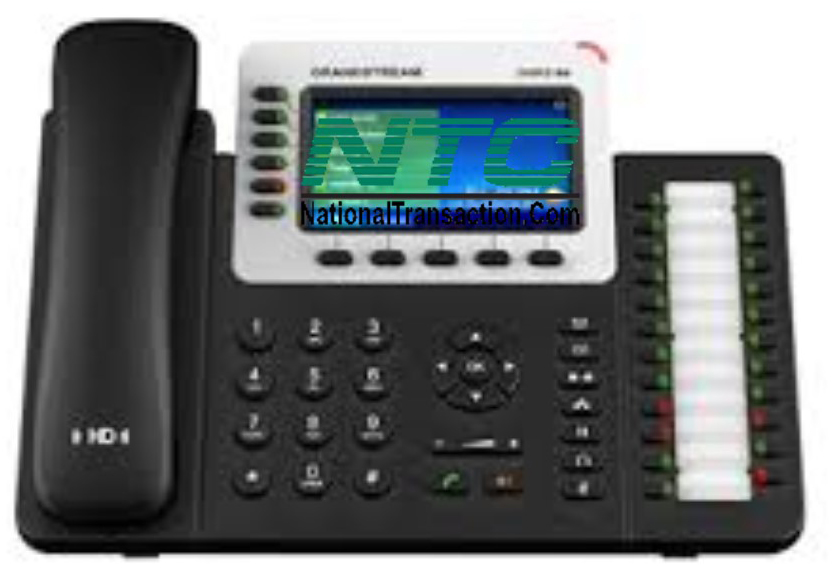
April 4th, 2017 by Elma Jane
Customer Service Revolution A State Of Being!
Customer experience will overtake price and product as a key brand differentiator. Every single interaction a customer has factors into whether they remain loyal or switch to a competitor. Customer experience affects brand loyalty.
Common mistakes when engaging customers and how to avoid them:
Being unprepared
Poor interaction related to customer support means losing customer or sale. Don’t be passive when a customer calls for help. Familiarize yourself with a customer’s background.
To ensure that the customer is using the product to the fullest extent, jump into each interaction with personalized tips on specific features. If you come to each call proactively prepared, your customers are getting the most value from your product.
Failing to build a relationship
Avoid negative engagement with a customer, track customers engagement. Plan targeted, purposeful interactions to ensure they remain happy. Take the time to get to know your customers before any issues arise. Developing strong relationships with customers means they are more likely to talk to you not resort to extreme measures.
Making a useless call merely to check in
Don’t reach out to your customer blindly, consider these questions:
Are they happy using the product? Are they using the most advanced feature? Dive deep into customer data to better understand how customers are using the product and what they might need.
NTC uses a range of tools to collect data and gather insights about our customers and use that data to understand which customers may need more hand-holding and training to increase their level of engagement.
Learn more about your customer in advance; with all of this knowledge you can better address questions or concerns with specific tips or support.
That is NTC’s Customer Service!!!
Posted in Best Practices for Merchants Tagged with: customer, data, product
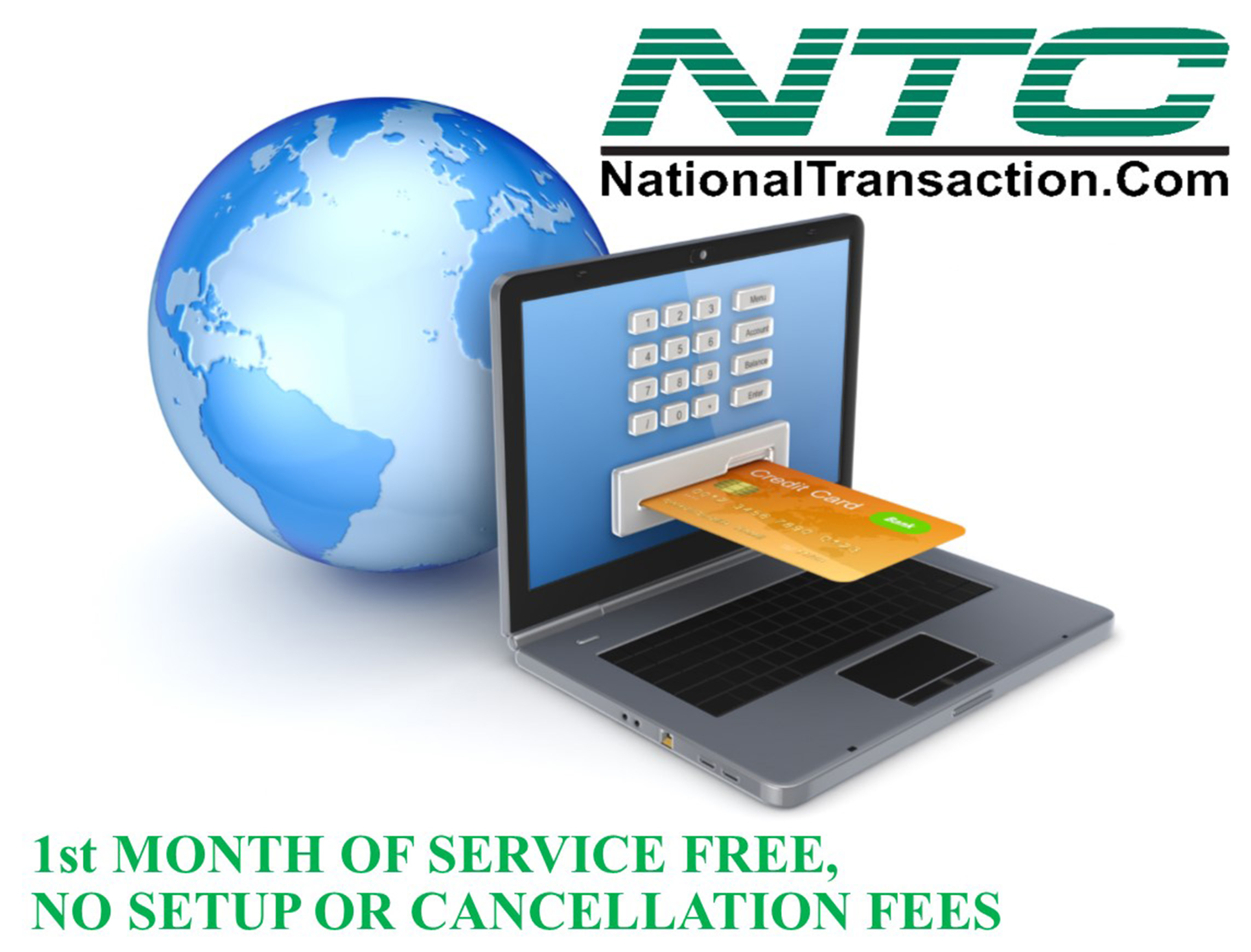
March 15th, 2017 by Elma Jane
Payment Options
Technology continues to evolve, offering multiple billing and payment methods increases satisfaction by improving customer experience.
Customers will continue to move toward digital life, like embracing different forms of online billing and ways to accept payments.
Creating convenient ways to accept payments and having more options can reduce the time it takes your business to get paid.
Accept debit and credit card payments online; to offer this feature you need to get a merchant account.
Options for accepting payments:
Electronic Check Service (ECS) – convert paper checks to electronic transactions, with NTC’s ECS. Converting paper checks to electronic transactions eliminates many of the risks and costs, adding money to your bottom line.
Mobile Payments – the opportunity to increase revenue through mobile payments is huge. Many consumers find that mobile bill pay makes shopping easier, more convenient and saves time. Converge Mobile Solution lets you accept card payments using smartphone or tablet. The app works with most Apple and Android mobile devices.
Online Payment Gateway – offering customers an online payment form enables them to pay you easily and allows you to accept payments by credit card, debit card or echeck.
Electronic Invoicing (NTC ePay) – send your customers an invoice by email and get paid in minutes. Electronic Invoicing gives your customer the ability to pay their bills and receive a receipt in seconds by email.
Learn more about accepting electronic payments with NTC or sign up with us.
No setup or cancellation fees, there’s no risk! call now 888-996-2273
Posted in Best Practices for Merchants Tagged with: credit card, customer, debit, echeck, ECS, Electronic invoicing, electronic transactions, merchant account, mobile, online, payment, payment gateway
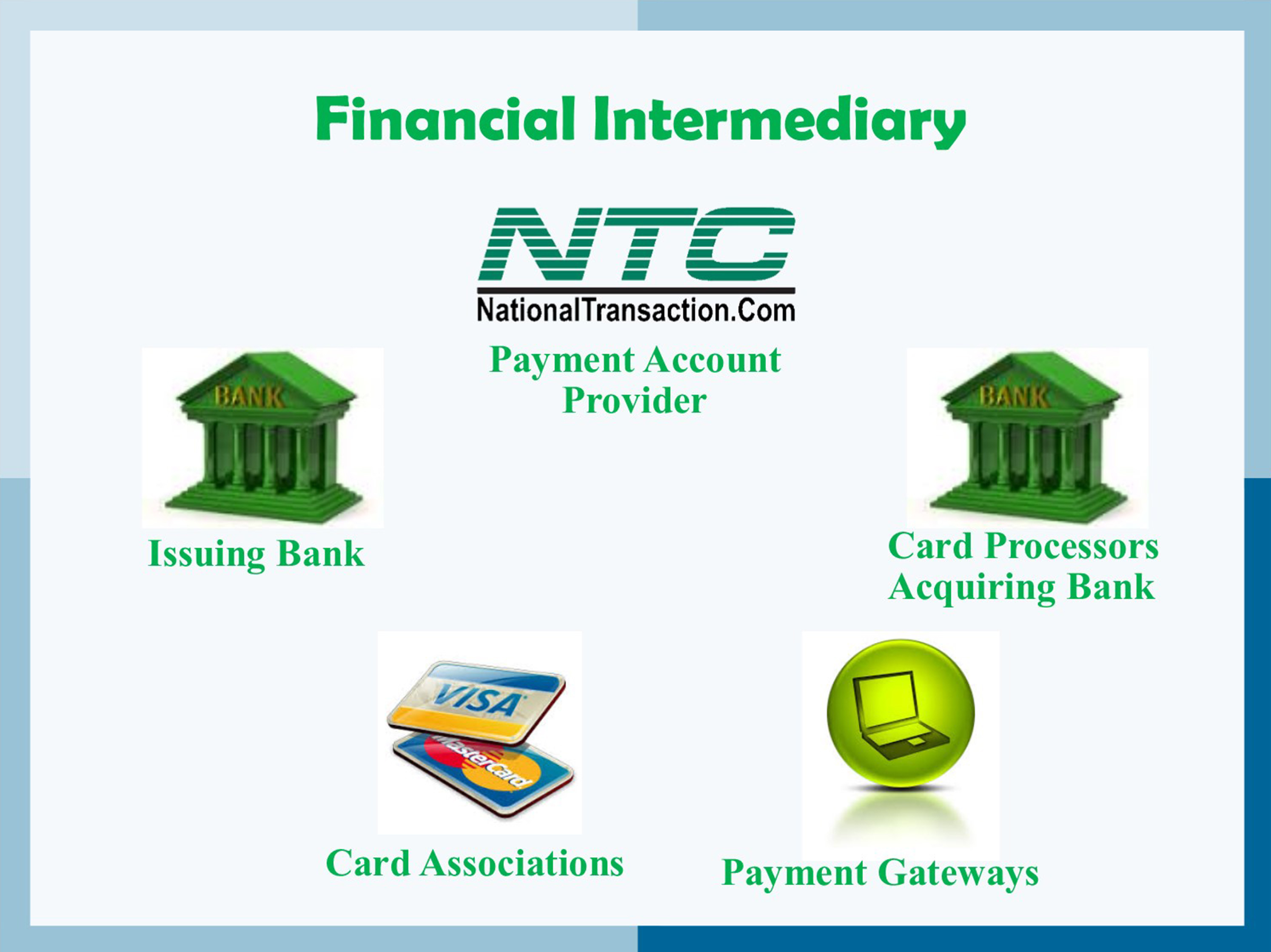
March 7th, 2017 by Elma Jane
Financial intermediary between a customer and merchant include:
Card Associations – Visa, MasterCard, and American Express.
Card Issuing Banks – are the financial institutions affiliated with the card association brands and provides credit or debit cards directly to customers.
Card Processors – also known as Acquirer or Acquiring Banks. They pass batch information and authorization requests so that merchant can complete transactions in their businesses. These institutions are the link between payment account providers and card associations.
Payment Account Providers – are companies like NTC that manage credit card processing, usually through the help of a Card processor also known as Acquiring Banks.
Payment Gateways: These are special portals that route transactions to a card processor or acquirer.
Posted in Best Practices for Merchants Tagged with: banks, card associations, credit, customer, debit cards, financial, gateways, merchant, payment, processors, provider's, transactions

February 16th, 2017 by Elma Jane
Chargeback Cycle
A chargeback is also known as a reversal; a credit card transaction that is reversed to a merchant because of the customer or customer’s bank disputes charges. Other reasons include fraud, credit card processing errors, authorization issues and non-fulfillment of copy requests. There’s an assigned reason code for every chargeback. Reason codes may vary by VISA and MasterCard.
How does the chargeback cycle work?
1. A customer files a complaint to card-issuing bank.
2. The bank sends disputed transaction (chargeback) to acquirer.
3. Acquirer receives chargeback and resolves it or forwards to the merchant for documentation.
4. Merchant accepts chargeback or addresses issues and resubmits to Acquirer.
5. Acquirer represents the chargeback to the issues once acquirer agrees the merchant has properly addressed it.
6. The issuer resolves the dispute by reposting to the cardholder’s account.
7. The cardholder receives dispute information and may be rebilled or credited.
Every merchant that offers credit card processing to its customers should be concerned about chargebacks to their merchant account.
Lower your risk of chargebacks by following the tips below:
Verify card logos, credit card numbers, identification, customer signature and check the expiration date.
Call for voice authorization if the card stripe doesn’t work or if the terminal is down or cannot authorize.
Authorize every transaction.
Be sure your customers are familiar with your return or exchange policy.
Posted in Best Practices for Merchants Tagged with: bank, cardholder, chargeback, credit card, customer, merchant, merchant account, transaction
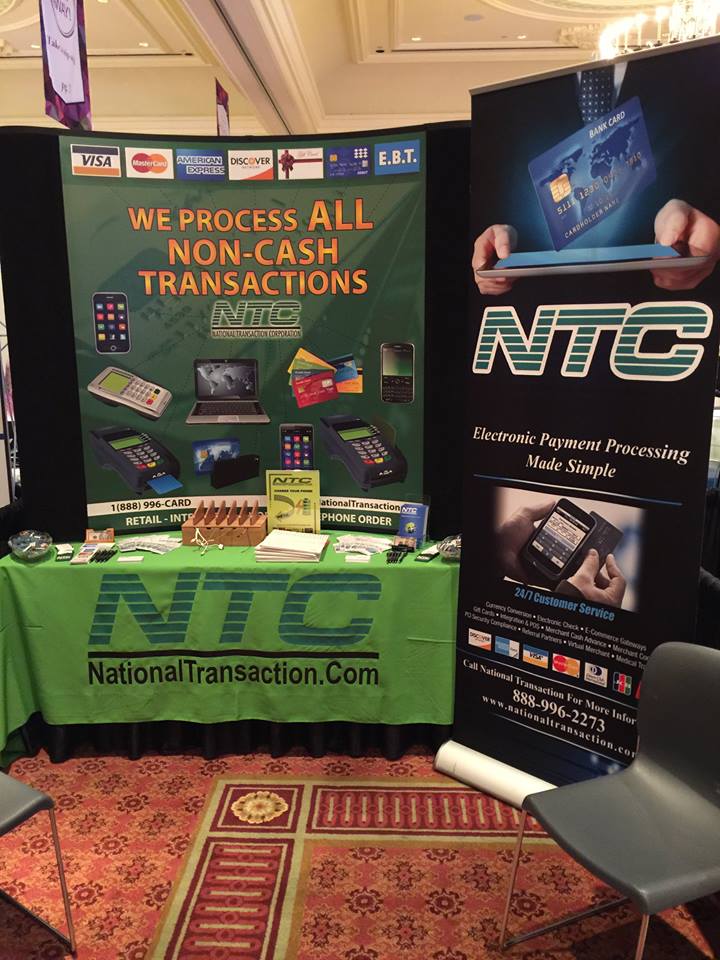
January 31st, 2017 by Elma Jane
Selecting a Payment Provider
Selecting electronic payments provider for your business is critical. NTC believes that the process starts with an honest assessment of your business and the types of credit card processing options it requires. (Retail or e-commerce, Card Present or Card-Not-Present)
Card present transaction is the most common type of account. Card-Not-Present (CNP) is a different type of account if you run a MOTO (mail order telephone order) or Internet operation.
Here are some points to keep in mind in selecting your electronic payments provider:
Referrals from fellow business owners and checking out payment providers online.
Evaluate products and services as well as cost to determine which electronic payments provider offers the biggest savings for your business.
Make sure the deals you’re considering include all the features and services you need and none that you won’t use.
Keep upgrade options in mind.
Look for 24/365 support and discuss customer service support.
Read the fine print in your contract.
The merchant account provider’s reputation is important, so find out how long they’ve been in business and their reputation in the industry.
NTC has over 20 years’ of Bankcard History. Helping businesses of all sizes for over 25 years in the industry. Call us now 888-996-2273 and tell us all about your business needs and requirements and we’ll put together a package of products and services that will best serve your credit card processing needs. There are a variety of solutions, so it’s important to focus in on those that directly address your needs.
Posted in Best Practices for Merchants Tagged with: cnp, credit card, customer, e-commerce, electronic payments, internet, merchant account, online, payment provider, payments, retail, transaction
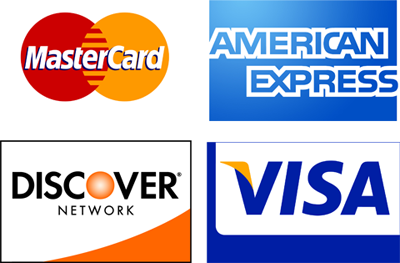
January 25th, 2017 by Elma Jane
PIN vs. Signature: What’s the Difference?
PIN Debit – PIN transactions are routed through what are known as (EFT) electronic funds transfer. It immediately deducts the transaction amount from the customer’s checking account, which is linked to the debit card used for payment. EFT processing takes place when the customer chooses debit when prompted and then enters her PIN. PIN debit transactions are often referred to as online transactions because they require an electronic authorization.
Signature Debit – Signature-based debit transactions are authorized, cleared and settled through the same Visa or MasterCard networks used for processing credit card transactions. Signature debit processing is initiated when the customer selects credit when prompted by the POS terminal. Signature debit transactions are referred to as offline transactions because a PIN debit network does not play a role in processing.
Posted in Best Practices for Merchants Tagged with: credit card, customer, debit, debit card, electronic, electronic funds transfer, online, payment, PIN, POS, terminal, transactions
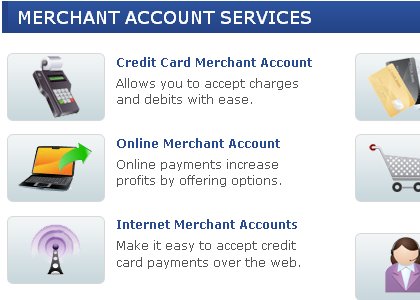
December 27th, 2016 by Admin
Merchant aggregator is an entity that can run many transactions through a single merchant account, an opposite to the traditional merchant account since you’re the sole owner.
Preferred for a smaller business because its not intended as a long term scalable solution to accepting payments.
For businesses that want to expand their processing needs, traditional merchant account will outgrow an aggregator, since the goal is for a business to grow, but it will always come to what’s best for individual business.
While you have the pros of quick application process and instant approval there are a lot of cons to check before getting an aggregator account.
CONS of an aggregator account:
CUSTOMER SERVICE – aggregators are hard to get hold of.
FEES – fixed fees .
FREQUENT HOLDS and DELAY OF FUNDS – aggregators hold funds 24-48 hours before depositing, while longer holds occur 30 days. (A client of ours who signed up with an aggregator came back in tears and wants to open her merchant account with us again because her funds was held with the merchant aggregator. She then promised will not leave and stay for life with NTC).
LOWER LIMITS – processing limits lower, annual limit of $100k.
PROS of a Traditional Account:
CUSTOMER SERVICE – 24/7 technical support.
FUNDS – next day funding, no frequent account holds.
FEES – tailored to your business needs.
LIMITS – varies by financial strength and business
Setting up a Merchant Account? Call us now! 888-996-2273 or go to www.nationaltransaction.com
Posted in Best Practices for Merchants, Travel Agency Agents Tagged with: customer, fees, funds, merchant, merchant account, payments, transactions
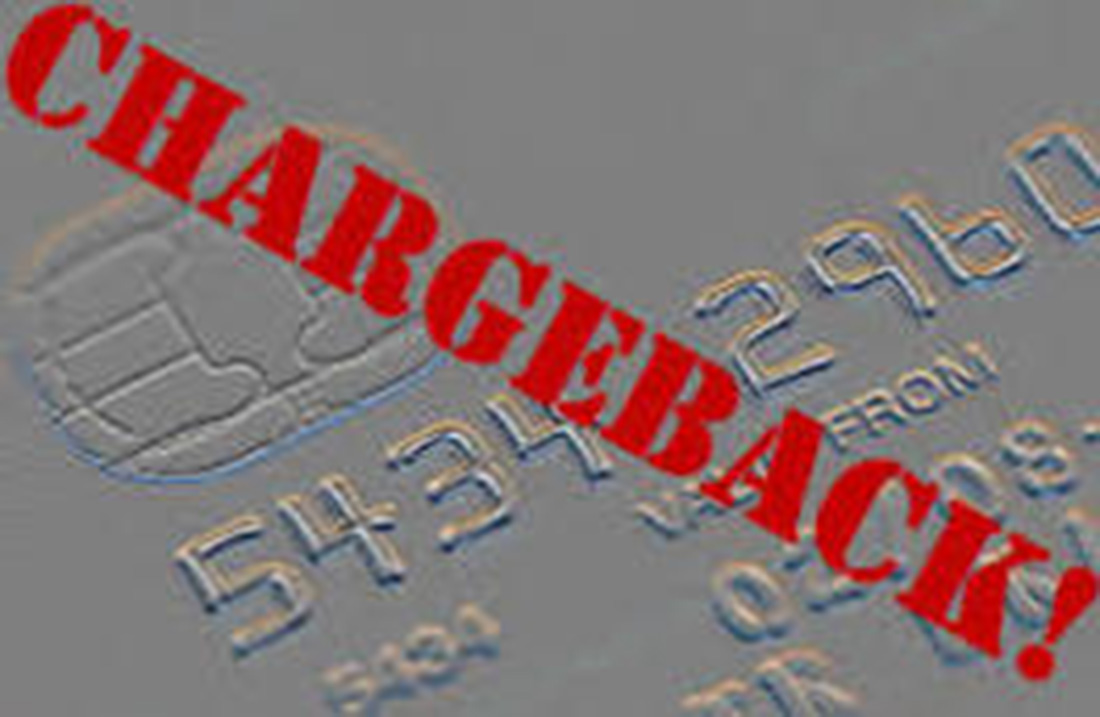
December 21st, 2016 by Admin
Ways to Prevent CHARGEBACK:
Provide Receipts for every single transaction. Receipt serves as a good reminder to the purchase they make and decreases the likelihood of a charge back. Have the conditions of sale written on the receipt
Be clear about refunds, returns and cancellation policies – include refund, return and cancellation policy on your website.
Make sure charge descriptions are clear. Use dynamic descriptors – with dynamic descriptors, you can include specifics like the product purchased, business name, business location and contact information. Include a number as part of the charge description.
Provide accurate descriptions of products and services – accurate product descriptions are particularly important for online ecommerce where customers often dispute transactions because the product they received is not as it was described online.
Get signed proof of delivery products – especially if you’re an online ecommerce vendors that ships products regularly.
Communicate with customers about renewals – if your customer accounts are set to automatically renew, make sure you notify those customers of their renewal months leading up to the renewal day.
When a cardholder contacts their credit card-issuing bank and asks for a refund on a transaction for a purchase or service made on their card is called chargeback.
Most Common Reasons for Chargebacks:
Point-of-sale processing errors
Customer disputes like, customer doesn’t recognize the charge, customer claims they didn’t receive the item they ordered.
Fraud, or potential fraud (customer claims the transaction is fraudulent – the purchase was made with a stolen card).
Posted in Best Practices for Merchants Tagged with: bank, cardholder, chargeback, credit card, customer, ecommerce, fraud, online, point of sale, transaction

November 29th, 2016 by Elma Jane
GET THE LOWEST CREDIT CARD TRANSACTION RATES & FEES BY DOING THE FOLLOWING:
1. Use newer POS systems to reduce credit card fees.
2. Find out what percentage of your gross sales go toward credit card rates.
3. Perform a statement review at least annually.
Any time a customer uses a credit card to purchase services and goods the merchant pays various rates and fees processing those transactions. Most of these fees go to the bank issuing the credit card as they take on the bulk of the risk in credit card transactions.
Visa, American Express and Discover own the network on which these credit card transactions are processed on and they receive part of the fee and percentage rate as well as establish these rates and fees. Finally the bank that provides merchant account services gets part of these rates and fees.
To a small business 2, 3, or even 4% might not sound like much but when these fees are on the gross total of sales they can be significantly higher than originally thought.
For this reason it’s a great idea to assess your merchant account statement to see if rates are in line and that your most frequently used cards and transaction types are getting the best rate possible. By going over your statement, you can see exactly what you pay per transaction and get details about your most common transaction types and credit card used to get the process going.
If you are unfamiliar with what these rates and fees mean on your statement companies like National Transaction can perform the review for you. Free of charge.
Ultimately the best thing to have is a merchant account service provider that will take the time to go over your business with an eye lowering your rates and fees. The savings can be significant. As a business grows it changes and there should be an ongoing strategy at maintaining the best processing rates and fees possible. Today with so many different credit card types, like rewards cards, airline miles programs and more it can pay off to check once or twice a year.
For FREE Rate Review give us 888-996-2273
Posted in Best Practices for Merchants, Travel Agency Agents Tagged with: bank, credit card, customer, merchant, merchant account, POS, rewards cards, service provider, transaction
November 28th, 2016 by Elma Jane
Payment acceptance is key to making more money.
Let’s talk about your money, and how to make more of it. Today money is taking on a new form. It’s digital, it’s electronic and it’s everywhere and anywhere 24/7/365.
Payment acceptance is key to making more money. You don’t make more money by not accepting a transaction, and making the experience convenient and safe to your customer can bring loyalty.
Let’s break down a transaction.
Cash, but that would mean that the customer has to be in front of you. You could take checks, those are safe to mail, but then you don’t have your money until you drive to the bank and cash or deposit the check.
So how do we easily and securely transfer funds for a transaction? The answer lies in digital or electronic payments. Accepting credit cards, debit cards, ebt cards or even gift & loyalty cards and electronic checks. These provide secure and convenient ways to complete transactions for your customers. If you want to make more money, make it easy for customers to spend it while making it faster for you to receive it. That’s where a merchant account comes in.
A merchant account allows you to deposit funds directly into your bank account in as little as a few hours. Whether the customer swipes their card into your smartphone, calls it in over the phone or keys it into your web site, just having a merchant account can be a huge advantage over competitors.
It allows you to conduct transactions in more ways than cash or checks alone. Transactions are recorded automatically and can easily be reconciled for both customer and merchant. Most importantly it widens the opportunities to conduct sales to the widest customer audience possible.
No matter what you sell or how you sell it, the sale is only complete once the funds are transferred from one party to the other.
It’s important to recognize your missed opportunities. Could accepting electronic payments help increase your revenue stream? We’re here to help you make more money, let us show you the many ways we can do just that. Let’s talk, 888-996-CARD (2273)
Posted in Best Practices for Merchants, Credit card Processing, e-commerce & m-commerce, Electronic Check Services, Electronic Payments, Gift & Loyalty Card Processing, Mail Order Telephone Order, Mobile Payments, Travel Agency Agents Tagged with: credit cards, customer, debit cards, ebt cards, electronic checks, electronic payments, gift & loyalty cards, merchant account, payment, smartphone, transaction








